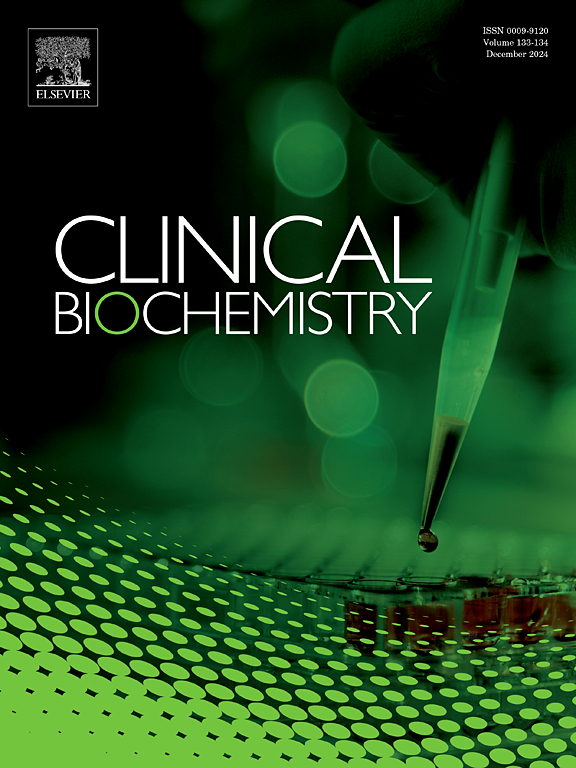Building a sustainable laboratory culture: The power of awareness and strategic training programs
IF 2.1
3区 医学
Q2 MEDICAL LABORATORY TECHNOLOGY
引用次数: 0
Abstract
Introduction
Climate change, driven by human activities, poses a critical threat to global ecosystems and public health. Healthcare facilities, responsible for 4.4% of global carbon emissions, must adopt sustainable practices to mitigate their environmental impact. Laboratories, as significant energy consumers within this sector, play a pivotal role in promoting sustainability. This study aimed to enhance sustainability awareness through a targeted training program focusing on climate change, carbon footprint reduction, and green chemistry.
Method
A four-session training program covered topics such as energy efficiency, waste management, and eco-friendly laboratory practices. Delivered in both face-to-face and online formats, the program targeted diverse groups, including academicians, resident doctors, technicians, and administrative staff. Participants’ baseline knowledge was assessed using a pre-test, with training effectiveness evaluated through a post-test. A 14-question survey assessed knowledge gains, and statistical analyses were performed using SPSS.
Results
Post-training assessments revealed significant knowledge and awareness improvements across all participants, particularly among resident doctors and technicians. Resident doctors excelled in both pre-test and post-test scores. The training format (face-to-face or online) did not significantly impact learning outcomes (p=0.137).
Discussion
The program effectively increased sustainability awareness, demonstrating the value of structured educational interventions. These findings support integrating climate change education into healthcare curricula and highlight the equal effectiveness of flexible learning models.
Conclusion
This initiative underscores the importance of education in advancing sustainable laboratory practices. Its success led to the Antalya Training and Research Hospital’s Medical Biochemistry Laboratory receiving the Green and Sustainable Laboratory Certification from EFLM. Empowering laboratories through innovative training fosters environmental stewardship, supporting global efforts to combat climate change.
建立可持续发展的实验室文化:意识和战略培训计划的力量
由人类活动驱动的气候变化对全球生态系统和公共卫生构成严重威胁。占全球碳排放量4.4%的医疗保健设施必须采取可持续做法,以减轻其对环境的影响。实验室作为该部门重要的能源消费者,在促进可持续性方面发挥着关键作用。这项研究旨在通过一个有针对性的培训项目,以气候变化、碳足迹减少和绿色化学为重点,提高人们的可持续发展意识。方法四节课的培训计划涵盖了能源效率、废物管理和环保实验室实践等主题。该项目采用面对面和在线两种形式,针对不同的群体,包括院士、住院医生、技术人员和行政人员。参与者的基线知识通过前测试进行评估,培训效果通过后测试进行评估。一项包含14个问题的调查评估了知识收益,并使用SPSS进行统计分析。结果培训后评估显示,所有参与者的知识和意识都有了显著提高,尤其是住院医生和技术人员。住院医生在测试前和测试后的得分都很出色。培训形式(面对面或在线)对学习结果没有显著影响(p=0.137)。该项目有效地提高了可持续发展意识,展示了结构化教育干预的价值。这些发现支持将气候变化教育纳入医疗保健课程,并强调灵活学习模式的同等有效性。结论该倡议强调了教育在推进可持续实验室实践中的重要性。它的成功使安塔利亚培训和研究医院的医学生物化学实验室获得了EFLM的绿色和可持续实验室认证。通过创新培训增强实验室的能力,促进环境管理,支持全球应对气候变化的努力。
本文章由计算机程序翻译,如有差异,请以英文原文为准。
求助全文
约1分钟内获得全文
求助全文
来源期刊

Clinical biochemistry
医学-医学实验技术
CiteScore
5.10
自引率
0.00%
发文量
151
审稿时长
25 days
期刊介绍:
Clinical Biochemistry publishes articles relating to clinical chemistry, molecular biology and genetics, therapeutic drug monitoring and toxicology, laboratory immunology and laboratory medicine in general, with the focus on analytical and clinical investigation of laboratory tests in humans used for diagnosis, prognosis, treatment and therapy, and monitoring of disease.
 求助内容:
求助内容: 应助结果提醒方式:
应助结果提醒方式:


